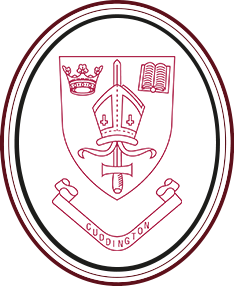Science
Purpose of study
A high-quality science education provides the foundations for understanding the world through the specific disciplines of biology, chemistry and physics. Science has changed our lives and is vital to the world’s future prosperity, and all pupils should be taught essential aspects of the knowledge, methods, processes and uses of science. Through building up a body of key foundational knowledge and concepts, pupils should be encouraged to recognise the power of rational explanation and develop a sense of excitement and curiosity about natural phenomena. They should be encouraged to understand how science can be used to explain what is occurring, predict how things will behave, and analyse causes.
Aims
The national curriculum for science aims to ensure that all pupils:
- develop scientific knowledge and conceptual understanding through the specific disciplines of biology, chemistry and physics
- develop understanding of the nature, processes and methods of science through different types of science enquiries that help them to answer scientific questions about the world around them
- are equipped with the scientific knowledge required to understand the uses and implications of science, today and for the future.
The Science Curriculum at Cuddington
Cuddington Community will “Bring out the Best” in our pupils by providing a language rich and diverse experience both within and beyond the classroom. Our flexible approach enables everyone to thrive personally and academically, overcome challenges and prepare them for lifelong learning.
This is reflected in our curriculum approach to learning Science, using the aims set out in Development Matters (2021) and the National Curriculum (2014) as frameworks for how we map content, ensure progression in knowledge and sequence our units of work.
Intent, Implementation, Impact
It is our goal at Cuddington Community Primary School to deliver a high-quality science education that gives children the foundations they need to understand the value of science in all aspects of life. We place great emphasis on the appropriate knowledge, skills and subject-specific vocabulary to be successful and ready for the next stage of their education and into their adult lives.
Children will be able to become inquiry-based learners who collaborate by exploring, investigating, and analysing experiences as part of our curriculum. It will instil a sense of reverence for living things and the natural world.
A broad and balanced science curriculum will be provided to all students, reflecting the school's equality and diversity principles and practices. Cuddington Community Primary School use high quality resources from SNAP science in KS1 and KS2 in lessons for science and have developed a comprehensive curriculum.
KS1 and KS2 Curriculum Overview
|
|
Autumn 1 |
Autumn 2 |
Spring 1 |
Spring 2 |
Summer 1 |
Summer 2 |
|
Year 1 |
Animals |
Materials |
Seasons |
Plants and Growing |
Using Senses |
Animals |
|
Year 2 |
Materials – shaping up |
Materials – making choices |
Growing Up |
Habitats |
Plants |
Taking Care of Ourselves |
|
Year 3 |
Our Changing World - Plants |
Skeletons, Muscles and Nutrition |
Magnets and Forces |
Rocks, Fossils and Soils |
Light, Shadow and Sun Safety |
Growing Plants – stems, roots and seeds |
|
Year 4 |
States of Matter: Solids, Liquids, Gases |
Sound |
Electricity |
Nutrition and Digestion |
Human Impact on the Environment |
Living Things and Habitats |
|
Year 5 |
Living Things and their Life Cycles |
The Earth and Forces: Resistance and Friction |
Changes of State: Reversible/ Irreversible Changes |
Sorting Materials |
Separating Mixtures |
Reproduction of Plants and Seeds |
|
Year 6 |
Light |
Body Health and Exercise |
The Heart and Circulation |
Evolution and Inheritance |
Electricity |
Living Things and Their Habitats |

